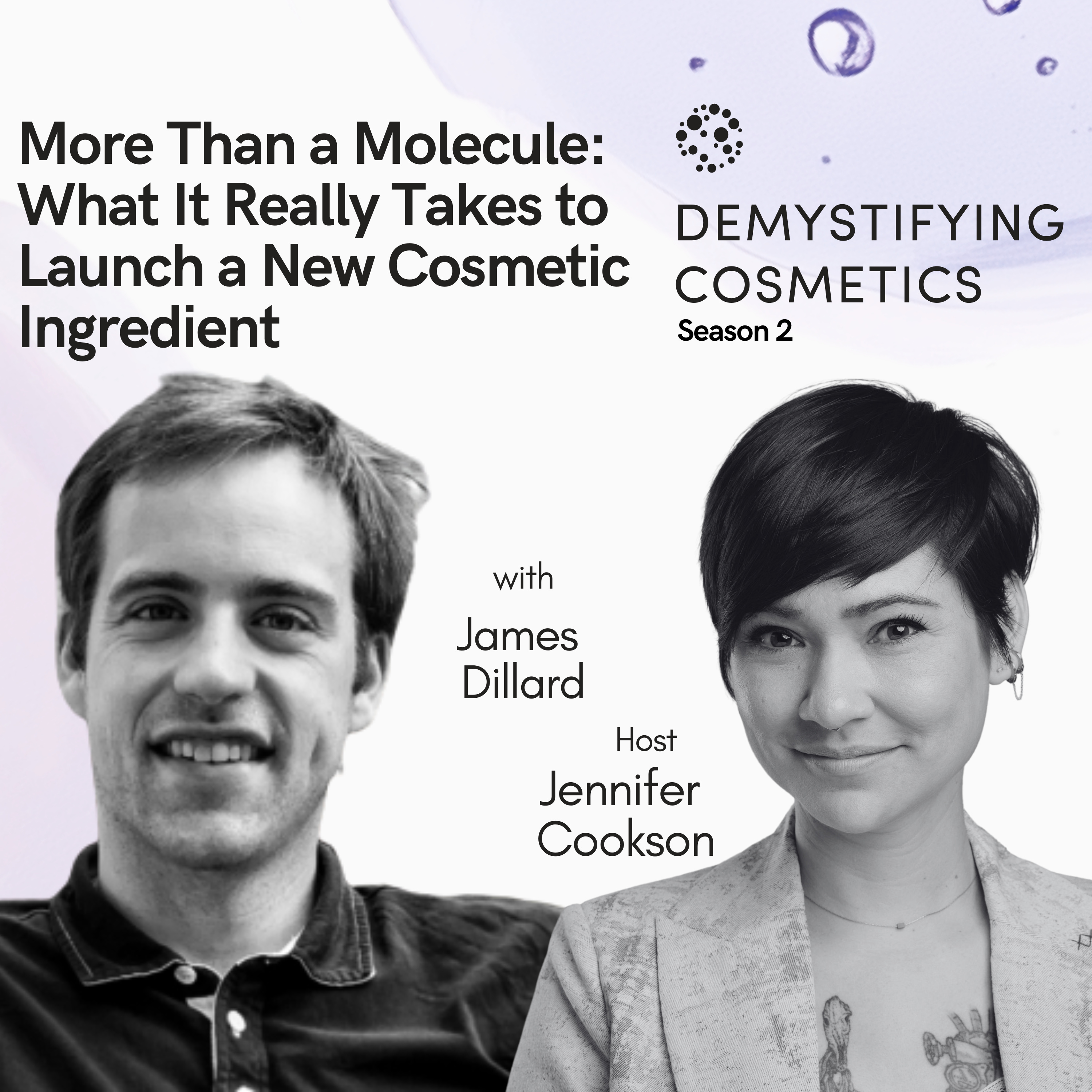More Than a Molecule: What It Really Takes to Launch a New Cosmetic Ingredient with James Dillard

In this candid 30-minute conversation, James Dillard shares what he wishes he had known before launching a new cosmetic ingredient—and what every formulator, brand founder, and raw material supplier should understand about the realities of innovation in beauty. We explore: Why scientific elegance isn’t enough—and what actually moves decision-makers, the invisible gatekeepers that stall ingredient adoption, how messaging, not just molecule design, shapes commercial success, why the industry’s narrow lens can block cross-industry innovation and the importance of storytelling, positioning, and relentless clarity.Takeaways:• The Unconventional Entry Point: James entered cosmetics through kelp as a zero-input crop, choosing beauty over nutraceuticals due to small-scale manufacturing requirements and high-value products. The beauty industry operates as a warm, tight-knit community that takes care of its own once you earn trust.• Scientific Elegance Isn't Enough: Ingredient developers must translate technical performance into consumer benefits. Buyers want uniqueness that creates lasting customer relationships, not just novel chemistry. Understanding that "unique" might mean a plant-based pump spray mineral sunscreen, not impressive lab results.• Focus on One Use Case, Not Everything: Claiming your ingredient works for everything reads as "good for nothing." Focus on being 10 out of 10 in one specific application to overcome the risk hurdle. Customers will naturally experiment with other uses over time and feed back into your innovation loop.• Expect Long Sales Cycles and Build Trust Slowly: Plan for 12-18 month sales cycles with the first six months just building trust. The industry won't trust you until they see you at conferences twice. This creates challenges for startups needing to show investors concrete commitments beyond handshake deals.• Contract Manufacturers Can Enable Innovation: CMs are uniquely positioned to offer conditional contracts to ingredient startups, solving the chicken-and-egg problem of scaling. This would allow startups to show investor traction while giving CMs exclusive access to novel ingredients that differentiate their offerings.
Whether you're a startup trying to break into the ingredient space or a brand overwhelmed by the influx of “next-gen” actives, this episode offers an unfiltered look at the grind behind the gloss.